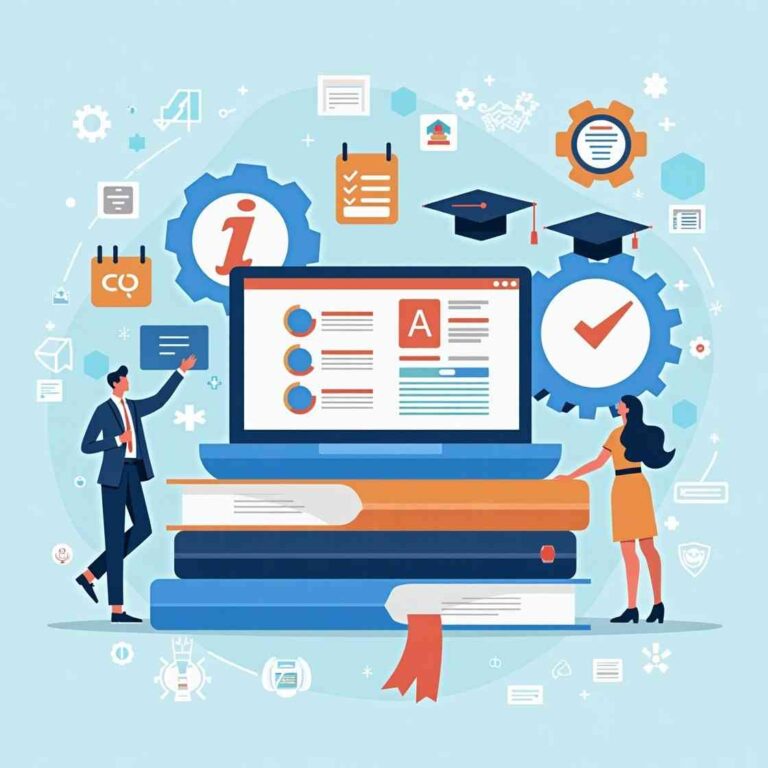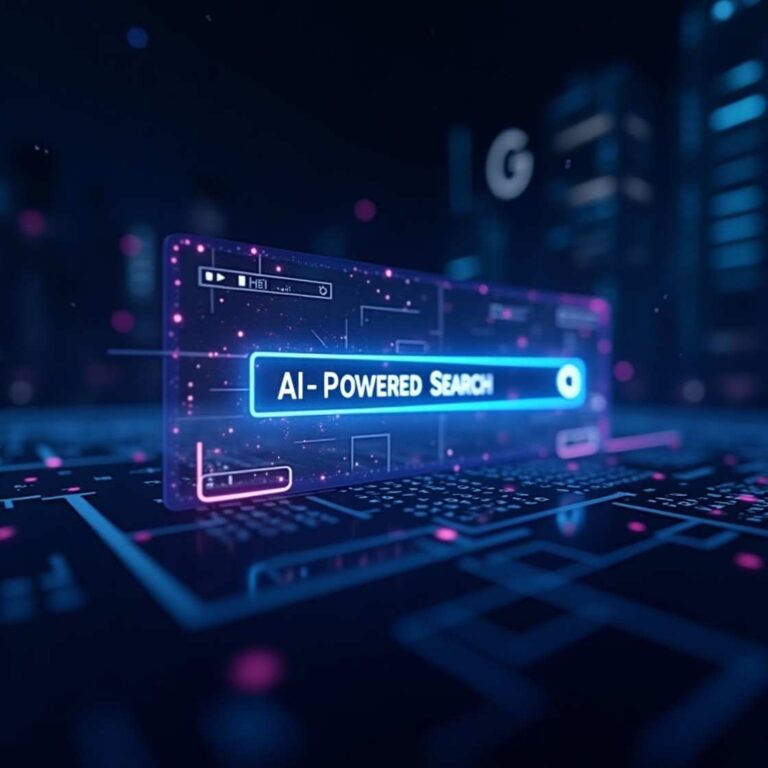Table of Contents
The Future of AI in Education
The future of AI in education is set to revolutionize learning experiences, making education more accessible, personalized, and efficient. By 2030, AI-powered tools will transform classrooms, automate tasks, and enhance the learning journey for students and educators alike. This article explores the major AI-driven advancements we can expect in education over the next decade.
Key AI Innovations in Education by 2030
1. Personalized Learning with AI Tutors
AI-powered tutors will offer personalized learning paths based on individual student needs. These intelligent systems will:
- Analyze student progress in real time.
- Adapt teaching methods to match learning styles.
- Provide instant feedback for continuous improvement.
Pro Tip: AI-driven adaptive learning platforms like Knewton and Squirrel AI are already making strides in this area.
2. Automated Grading & Feedback
By 2030, AI will handle a significant portion of grading, allowing teachers to focus on mentorship and personalized instruction. Expect:
- AI tools evaluating essays, quizzes, and assignments.
- Instant feedback to help students understand mistakes.
- Reduced workload for educators, improving efficiency.
3. AI-Enhanced Smart Classrooms
Smart classrooms will integrate AI-driven technologies, such as:
- Facial recognition to track student engagement.
- Speech recognition to support voice-assisted learning.
- Virtual Reality (VR) & Augmented Reality (AR) to create immersive lessons.
Example: AI-powered classroom solutions like Classcraft and Century Tech are already transforming traditional teaching methods.
4. AI in Special Education
AI will play a crucial role in making education more inclusive. AI-driven tools will:
- Assist students with learning disabilities through speech-to-text and text-to-speech technology.
- Provide real-time sign language translation for hearing-impaired students.
- Offer personalized learning for neurodiverse individuals.
5. AI-Powered Career Guidance & Skill Development
AI will revolutionize career counseling by analyzing students’ strengths and suggesting suitable career paths. Key benefits include:
- AI-driven career recommendation systems.
- Skill-based learning programs tailored to job market needs.
- Virtual internships using AI simulations.
6. AI-Driven Language Learning
Language learning apps like Duolingo already use AI, but by 2030, we can expect:
- AI chatbots for real-time language practice.
- Advanced speech recognition for pronunciation improvement.
- Personalized lesson plans based on learner progress.
7. AI & Blockchain for Secure Credentialing
AI and blockchain will ensure academic records remain tamper-proof and easily verifiable. This will:
- Prevent credential fraud.
- Enable global access to verified certifications.
- Streamline university admissions and job applications.
8. AI-Driven Exam Proctoring & Security
AI will enhance the security and integrity of online exams. Features will include:
- Automated proctoring with AI monitoring.
- Real-time identity verification.
- AI-powered fraud detection systems.
9. AI-Optimized Curriculum Development
AI will play a key role in designing dynamic curricula that adapt to changing industry needs. Benefits include:
- Data-driven curriculum updates.
- Personalized course recommendations.
- AI-assisted syllabus optimization.
10. AI-Powered Virtual Learning Assistants
Virtual assistants powered by AI will revolutionize e-learning. Features will include:
- AI chatbots for instant academic support.
- Voice-activated learning assistants.
- Automated reminders and study schedules.
11. AI-Powered Predictive Analytics in Education
Predictive analytics will allow educational institutions to foresee student performance trends. AI will:
- Identify at-risk students before failure.
- Suggest personalized interventions.
- Improve student retention rates through AI insights.
12. AI-Driven Interactive Assessments
AI will transform traditional assessments into engaging experiences. Future assessments will:
- Use gamification to make learning fun.
- Provide real-time performance analytics.
- Adapt dynamically to challenge students at the right level.
13. AI for Mental Health Support in Education
AI will play a vital role in student well-being by offering mental health support. Expect:
- AI-powered chatbots for emotional support.
- Stress detection using AI-based facial recognition.
- Personalized mindfulness and relaxation techniques.
14. AI-Driven Automated Course Creation
By 2030, AI will assist educators in designing high-quality courses. Benefits include:
- AI-generated lesson plans tailored to student needs.
- Automated content creation with AI-curated resources.
- Real-time updates to course materials based on emerging trends.
15. AI-Enhanced Collaboration in Education
AI will foster a more interactive and engaging learning environment through:
- Smart AI-powered group project management.
- AI-driven peer feedback and collaboration tools.
- Virtual study groups with AI moderation.
Pros and Cons of AI in Education
Pros:
- Personalized Learning: AI adapts to individual learning styles, improving student engagement.
- Efficiency for Educators: Automated grading and AI assistants reduce workload.
- Improved Accessibility: AI-powered tools aid students with disabilities and language barriers.
- Data-Driven Insights: Predictive analytics help educators identify struggling students early.
- Career Readiness: AI-driven career guidance prepares students for the evolving job market.
Cons:
- Data Privacy Concerns: AI relies on vast amounts of student data, raising security risks.
- Bias in AI Algorithms: AI systems must be carefully programmed to avoid discrimination.
- Dependence on Technology: Excessive reliance on AI could reduce critical thinking skills.
- High Implementation Costs: AI integration requires significant investment in technology and training.
- Teacher-Student Relationship: Overuse of AI may diminish human interaction in education.
Challenges & Ethical Concerns
While AI offers numerous benefits, it also brings challenges:
- Data Privacy: AI systems will collect vast amounts of student data, raising privacy concerns.
- Bias in AI Algorithms: AI must be programmed ethically to avoid biases in learning recommendations.
- Teacher-Student Relationship: The human touch in education remains irreplaceable. AI should assist, not replace educators.
Future-Proofing Education: Preparing for AI Integration
To maximize AI’s potential in education, institutions must:
- Invest in AI-driven learning platforms.
- Train educators in AI literacy.
- Ensure ethical AI implementation for fair and unbiased education.
Conclusion: AI as a Catalyst for Educational Transformation
By 2030, AI will redefine education by making learning more personalized, efficient, and inclusive. While challenges exist, the future of AI in education promises immense benefits. Schools and educators must embrace AI as a tool to enhance learning rather than replace traditional teaching methods.
Disclaimer:
This article is for informational purposes only. AI in education is evolving, and its full impact by 2030 may vary based on technological advancements and policies.









I love the inclusion of AI for mental health support. With increasing awareness of student well-being, having a system that can detect early signs of stress or anxiety could really help schools provide better support to their students.